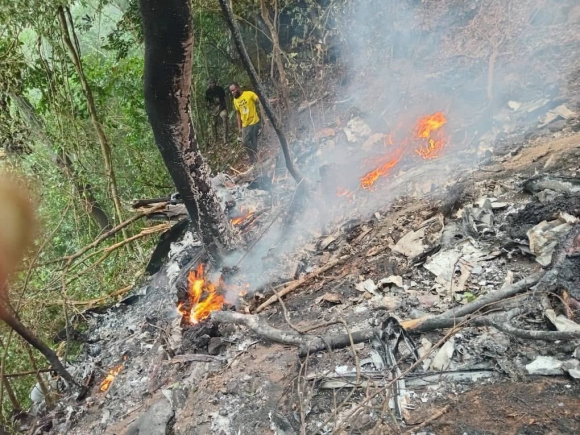Internationally, disaster, accident and crime scenes are treated as restricted areas and cordoned off by security personnel to preserve evidence.
This strategic move allows investigators to collect crucial data, such as footprints, fingerprints and objects to determine the cause of incidents in order to identify potential culprits.
By securing the scene, investigators can piece together the events surrounding the disaster or crime, informing their next steps and ultimately aiding in a thorough investigation.
The Daily Graphic expresses concern over the lack of awareness in Ghana regarding the importance of preserving disaster and crime scenes.
Unlike developed countries where citizens understand the need to cordon off areas for investigation, Ghanaians often rush to scenes, sometimes with malicious intentions.
This not only interferes with investigations but also contaminates potential evidence.
In road accidents, while some bystanders genuinely try to assist victims, others seek to profit from the situation.
Experts emphasise the need for a multi-step approach to handling disaster scenes, focusing on safety, preservation and effective response.
Securing the area, assessing the situation and gathering information are crucial steps that require public cooperation.
The scene at the helicopter crash site in Adansi Akrofuom District, Ashanti Region, was marred by unacceptable behaviour from residents.
After the crash that claimed eight lives, including the Defence Minister, Dr Edward Omane Boamah, and the Environment Minister, Alhaji Dr Ibrahim Murtala Mohammed, onlookers invaded the site, scrambling for souvenirs and posing for photos with the helicopter’s remnants.
Some individuals even carried away parts of the aircraft before security officials and investigators arrived, potentially compromising the investigation and posing safety risks.
The Daily Graphic acknowledges the residents' willingness to help at the helicopter crash scene but emphasises the need for public education on disaster, accident and crime scenes.
The actions of some youth who picked up aircraft parts for photographs likely stemmed from ignorance rather than malice.
This incident highlights the importance of educating citizens on the significance of preserving such scenes to ensure effective investigations and safety.
By redoubling efforts to raise awareness, we can prevent similar incidents in the future and promote a more informed and responsible citizenry.
A disturbing video from the helicopter crash scene showed a resident proudly claiming to have retrieved a wristwatch from one of the victims' hands.
This action not only raises ethical concerns but also potentially hindered the identification process.
The watch could have served as a valuable identifier, helping investigators to determine the victim's location and circumstances surrounding their death.
By removing the watch, the resident inadvertently compromised the investigation, highlighting the need for public education on respecting and preserving crime scenes.
Ghana has a significant opportunity to learn and improve its management of disaster, accident and crime scenes.
The National Commission for Civic Education (NCCE) and the Ghana
Police Service can play a crucial role in educating the public on their responsibilities in such situations.
By launching targeted campaigns and initiatives, they can raise awareness about the importance of preserving evidence, respecting the scene and allowing investigators to do their work.
It's a chance for Ghanaians to learn from past experiences and develop best practices for handling these critical situations.
Ghanaians must understand that accident and disaster scenes are restricted areas, accessible only to authorised personnel.
The Adansi-Brofoyedu helicopter crash incident serves as a stark reminder that items and exhibits from such scenes hold crucial evidence for investigators to determine the cause of the incident.
By respecting these areas and allowing trained professionals to handle the investigation, we can ensure that justice is served and lives not exposed to further risk.
Public education on this matter is essential to prevent interference with investigations and promote a safer, more responsible response to emergencies.

